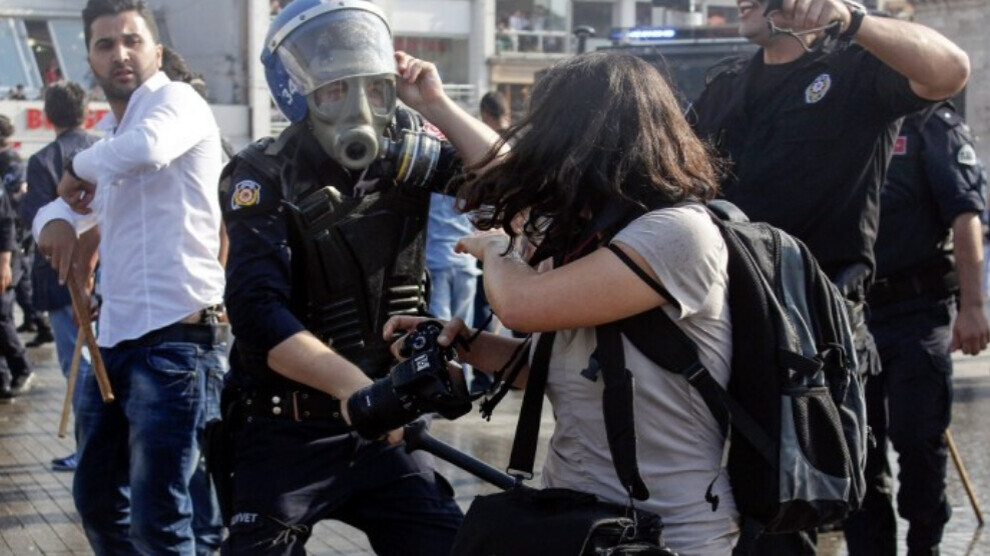RSF’s 2023 Round-up: 45 journalists killed in the line of duty worldwide
According to RSF, the number of journalists killed worldwide in connection with their work is the lowest since 2002, despite the war in the Middle East.
According to RSF, the number of journalists killed worldwide in connection with their work is the lowest since 2002, despite the war in the Middle East.

According to the annual round-up compiled by Reporters Without Borders (RSF), the number of journalists killed worldwide in connection with their work (45 as of 1 December 2023) is the lowest since 2002, despite the war in the Middle East. In Gaza, at least 13 journalists have been killed because of their work as journalists since the war began between Israel and Hamas, a total that rises to 56 if we include all journalists killed in the Gaza Strip, whether or not in the line of their work. Worldwide, 521 journalists are currently detained on arbitrary grounds linked to their profession (down 8.4% from 2022).
Reporting an overall decline in the number of journalists killed in the line of duty or in connection with their work, RSF stated that in 2023, a total of 45 journalists were killed in connection with their work, 16 fewer than in 2022 (61). This is the lowest figure recorded since 2002 (33). In 2012 and 2013, more than 140 journalists were killed, mainly due to the wars in Syria and Iraq.
“Among civilians in Gaza, journalists are paying a heavy price. We’ve noted that the number of journalists killed in connection with their work is very high: at least 13 in such a tiny territory. We have filed a complaint with the International Criminal Court (ICC) to establish the facts and to what point journalists were knowingly targeted. On a global scale, it seems that the number of journalists killed in the course of their work or in connection with their work is in sharp decline, over a long period of time. The reasons? Security measures at news organisations, training and allocation of protective equipment, caution, the effects of the fight against impunity and actions by inter-governmental organisations. The work of NGOs is undoubtedly also having an effect,” said RSF Secretary-General, Christophe Deloire.
According to RSF, the gradual decline in the number of journalists killed in connection with their work over the past five years can be explained in part by security improvements for journalists and the end of deadly spikes in Iraq and Syria, where nearly 600 journalists were killed in the line of duty from 2003 to 2022. In times of peace, stronger measures to protect journalistic work, especially through legislative means, and mechanisms to combat impunity would seem to account for the less deadly toll.
This year, 23 journalists have been killed in the course of their reporting in war zones. Most of them – 17 – were killed in the war between Israel and Hamas (including 13 in Gaza), during which 63 journalists lost their lives in total (including 56 in Gaza) if we include journalists killed in circumstances unproven to be related to their duties. For the first time in five years, more journalists have been killed in war zones than in peace zones.
A total of 521 journalists will begin 2024 in prison—versus 569 in 2022. China is yet again the world’s biggest jailer of journalists, with 121 media professionals locked up in its prisons (including 12 in Hong Kong and 42 in Xinjiang). This is nearly a quarter (23%) of the total number of journalists detained worldwide.
“The fall in the number of journalists detained worldwide (50 fewer on 1 December 2023 than on the same date in 2022) can be partly explained by the drop in the number of journalists in prison on that date in Iran (down 24) and Turkey (down 23). Not being among the top three jailers doesn’t mean that these two countries don’t jail: One of the techniques of persecuting journalists in Iran and Turkey is is actually to imprison them repeatedly. In 2023, a total of 43 Turkish journalists and 58 Iranian journalists spent time in prison,” RSF stated.
On the other hand, a total of 54 journalists are being held hostage around the world. Of the seven abducted this year, two are still being held by their captors. They are the Malian journalists Saleck Ag Jiddou and Moustapha Koné, who were taken hostage in northern Mali on 7 November, just seven months after the French journalist Olivier Dubois was finally released by his captors in the same region of Mali. The other media hostages are located in just four countries: Syria (38), Iraq (9), Yemen (4) and Mexico (1).